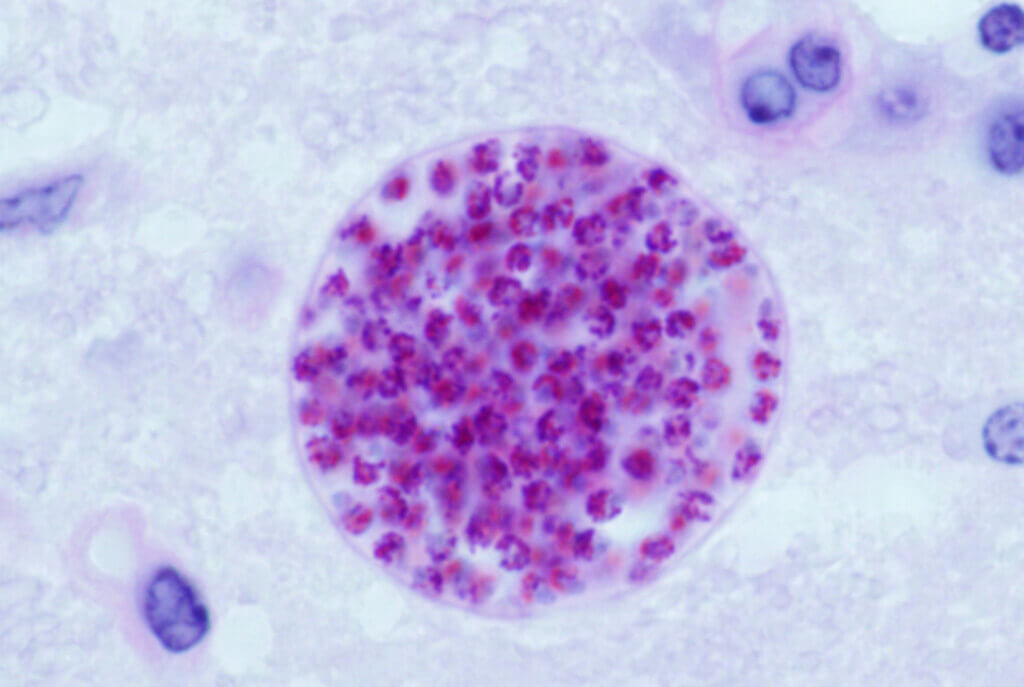BOULDER, Colo. — A dirty litter box could end up slowing cat owners down later in life. A new study has found a surprising risk factor for frailty in older adults: a parasite commonly spread by cats, known as Toxoplasma gondii (T. gondii).
Researchers from the University of Colorado Boulder are providing insight into how this tiny, single-celled organism could influence health more than previously recognized.
Frailty among the elderly is a concerning condition that encompasses a range of symptoms such as extreme tiredness, muscle loss, and cognitive impairment. It’s a common issue that affects the quality of life and independence of many older individuals. The international team, comprising researchers from CU Boulder, the University of Maryland School of Medicine, and the University of A Coruña in Spain, embarked on this research to explore the hidden impacts of T. gondii, particularly on the elderly population.
“We often think of T. gondii infection as relatively asymptomatic, but this study highlights that for some people it may have significant health consequences later on,” says co-author Christopher Lowry, a professor in the Department of Integrative Physiology at CU Boulder, in a university release.
The study involved examining blood samples from 601 older adults over the age of 65 from Spain and Portugal. Researchers were searching for signs of frailty, alongside markers in the blood indicating a past infection with T. gondii. An astonishing 67 percent of the study participants showed seropositivity, which means their blood had markers of a latent T. gondii infection.
Contrary to their initial hypothesis, the researchers did not find a direct link between T. gondii infection and frailty. However, they did discover that among those infected, individuals with higher “serointensity,” meaning a higher concentration of antibodies against T. gondii, were significantly more likely to exhibit signs of frailty.
The term serointensity may not be a household word, but it’s crucial in this context. It refers to the level of antibodies in the blood, which are proteins that the immune system creates in response to infections. A higher serointensity suggests that an infection with T. gondii may be more severe, widespread, or recently reactivated.

“This paper is important because it provides, for the first time, evidence of the existence of a link between frailty in older adults and intensity of the response to T. gondii infection,” says co-author Blanca Laffon, a professor of psychobiology at the Interdisciplinary Centre of Chemistry and Biology at University of A Coruña.
Understanding how T. gondii spreads is central to comprehending the risk it poses. Cats, both domestic and wild, are the definitive hosts for T. gondii. When they consume infected prey like birds or rodents, the parasite takes up residence in their intestines, multiplying and being shed in their feces. Humans typically become infected by encountering these eggs, which can happen through litter boxes, contaminated water or produce, or by eating undercooked meat from other infected animals. Most people infected with T. gondii are unaware of it, as only about 10 percent experience flu-like symptoms initially.
What’s particularly intriguing about T. gondii is its ability to remain dormant in the body, often for decades. It forms cysts within muscle and brain tissues, particularly in the amygdala – an area of the brain involved in emotion processing. This can lead to various insidious impacts, as research suggests.
For instance, infected rodents lose their innate fear of cats, which is an evolutionary advantage for the parasite. Infected chimpanzees in the wild have even shown an attraction to the odor of leopard urine. In humans, T. gondii infection has been associated with increased impulsivity, entrepreneurship, and higher risks of car accidents. More alarmingly, there are correlations with serious mental health conditions such as schizophrenia, mood disorders, cognitive issues, and an increased likelihood of suicide attempts.
The study’s authors caution that their findings don’t prove T. gondii causes frailty but rather point to an association that needs further investigation. They suggest that T. gondii may exacerbate the natural inflammation that occurs with aging, a phenomenon known as “inflammaging.” Additionally, because T. gondii often resides in muscle tissue, there’s concern it could contribute to sarcopenia, the age-related loss of muscle mass.
Dr. Teodor Postolache from the University of Maryland School of Medicine, the senior author of the study, offered insight into the potential implications of their findings. People with a high level of T. gondii antibodies, indicating past infection, also showed higher levels of inflammation. This suggests that the parasite could be contributing to a heightened inflammatory state, which is already a concern in the aging population.
The research not only opens the door to new scientific inquiries into the relationship between T. gondii and health but also highlights the importance of preventive measures to avoid infection, particularly among vulnerable groups such as the elderly, pregnant women, and those with weakened immune systems.
In summary, while T. gondii may have been considered a relatively benign parasite in the past, this study underscores the potential long-term health impacts it may have, particularly on the aging population. Further research could lead to new strategies to mitigate these risks and improve the health and well-being of older adults.
The findings are published in The Journals of Gerontology: Series A.
You might also be interested in:
- Brain-altering parasite makes infected people MORE attractive to others, study says
- Stray cats in busy areas more likely to spread parasite causing toxoplasmosis
- Best Cat Litter: Top 5 Feline Care Products Most Recommended By Experts
- What Are Best Cats For First-Time Owners? Top 5 Breeds, According To Experts

